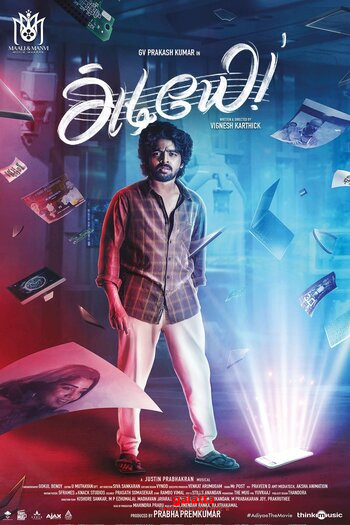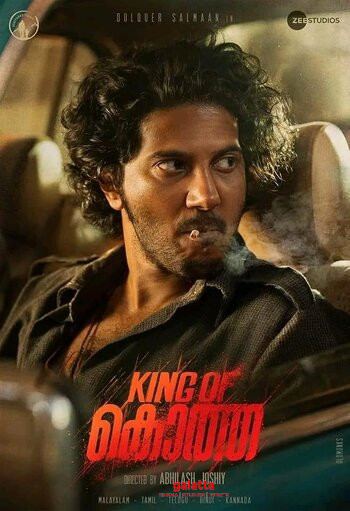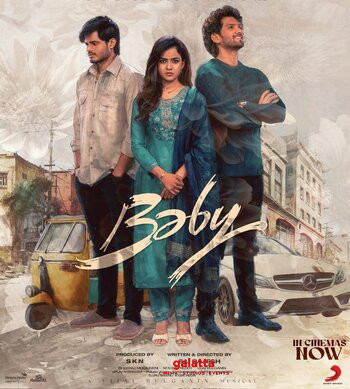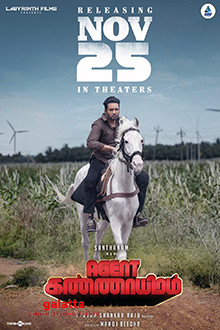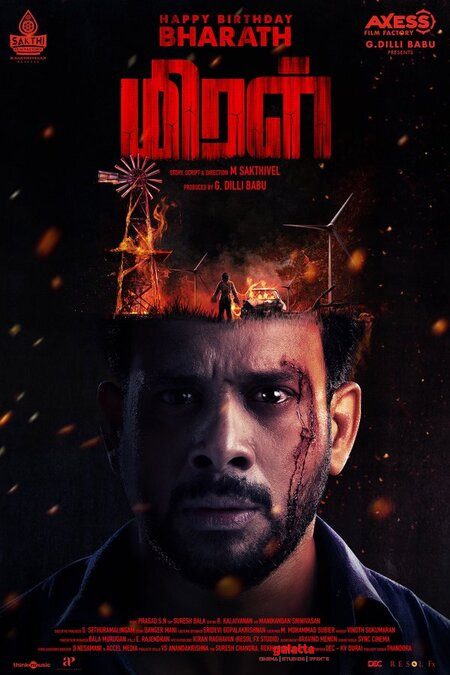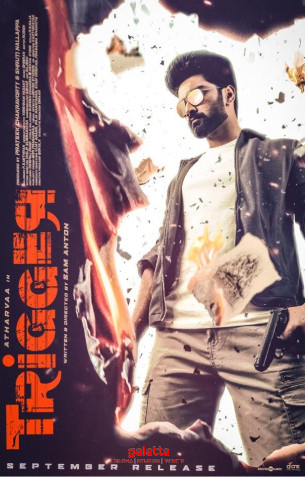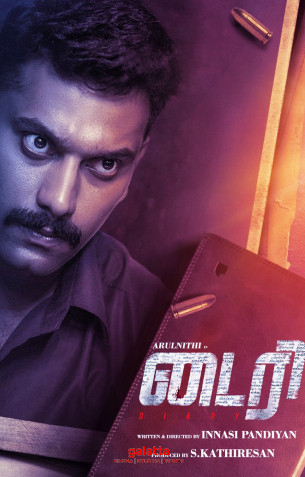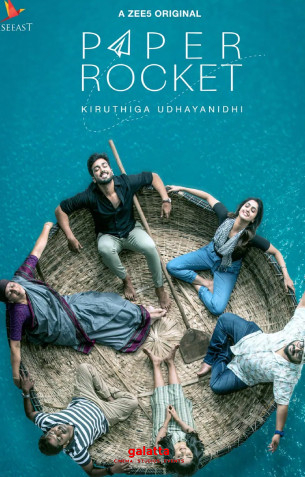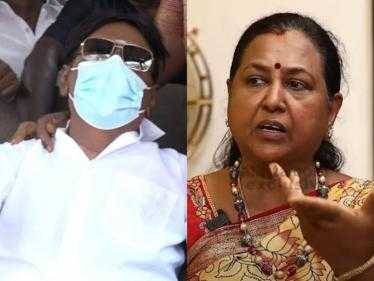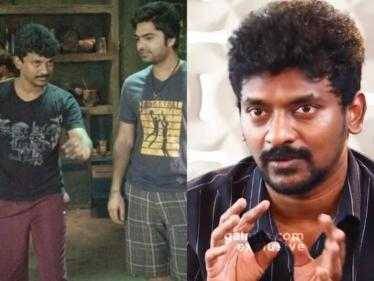Sapta Saagaradaache Ello &Ndash; Side A Movie Cast & Crew
In the heart-swelling Sapta Saagaradaache Ello - Side A, director Hemanth M Rao, his co-writer Gundu Shetty, and cinematographer Advaitha Gurumurthy give us a very real love story. Except for a sequence at the end where emotional violence on one side is edited in sync with physical violence on another side, this is a romantic drama where almost nothing is heightened, almost nothing is "cinematic". Given the title, the colour blue inevitably flows through the film, but in muted shades, in sync with the muted-ness of the moments and the performances. Rakshit Shetty has never been this naive, this open, this vulnerable, this much at the mercy of the fates, and his performance is complemented beautifully by that of Rukmini Vasanth. He plays Manu, she is Priya. She has that connect with the audience only a few special actors have. When she is going home in a bus and pulling away from him, she seems to be saying goodbye to us.
And within this very restrained, very real world, Hemanth and team write very restrained, very real poetry. It's there in the sad (and very brief) presence of an elderly man named Siddappa, who works for a very rich man. He has a whole movie inside him. It's there in the scene of a brutal separation. An intensely personal and private moment is played out in the most public kind of space, with a bustling crowd that's least bothered about this monumental event. At another instance, we find poetry in the extreme opposite situation: someone is alone, and there's only a voice on a tape recorder, and this someone and that voice might well be separated by the seven seas of the title. Allow me a moment to recall the days when people used to record "voice notes" or song compilations on a 90-minute cassette. You reached the end of Side A, and you waited for the continuation on Side B. That's the structure of this movie.
You could say that that is the structure of any film that is split into two parts, but it's rare to find a romantic drama split this way. An epic like Baahubali? Yes. Something this intimate? No. And that's why the tape recorder feels so right. It's a character in this movie, the equivalent of messenger birds that used to carry scrolls between lovers in our classical epics when the couple was physically separated. Some of the lines here have the same old-world charm. When Priya tells Manu, "You are my sea," it does not feel odd in this day and age. They are not a “cutesy” couple, and this line rings totally true. It’s something this woman would say to this man. Even Charan Raj's fabulous music has an old-world charm. When the title song explodes at the beginning, the melodious tune is backed by big, fat synth chords from the 1980s rock ballads. Despite being tuneful, the music is not "soft": it has emotional violence built into it.
The scenes, the structures always have a way of subverting your expectations. Pavitra Lokesh is lovely as Priya's mother, and her refreshing relationship with Manu feels utterly unforced. There's a scene where the "villain" is taking out his car, and you know that someone is going to confront him there. But the way this someone turns up (the framing), and the manner of the confrontation (which is merely implied) – it's beautiful. Hemanth has cut out the flab: the meet-cute, the introduction to parents, the first fight… Manu and Priya are a fully formed couple right from the beginning, firmly believing in their future together. I never wondered for a second what must have brought them together, or whatever. They seem so right together that their union seems a matter of destiny. And in between the big moments – say, while house-hunting, or while waiting for a courtroom hearing – we see the small things we like to see lovers do on screen. We see them kiss and hold hands and dream of a future a few years ahead.
In the midst of this gentle flow of feelings, some moments feel heavy-handed. I did not need a flashback with Priya's father to explain her love for the sea. Achyuth Kumar's part could have used a few grace notes. The man he plays is too one-dimensional. Some of the "philosophies" we hear after the plot moves to prison sound too direct and too message-y for a movie so understated. Manu's internal growth through the admission of a crime is quietly resonant, and that’s enough. But I loved the bit – again, in prison – where a married man tells Manu that he likes Priya. It is not what we think at all, and it's what I like to call an "emotional mass moment". A layer about class that peeks through is that, if you don't have money, even the world outside can be a kind of prison: on either side, there are men who can manipulate and control you through the use of power.
I was more than relieved when a powerful man and his wife – at least, initially – are different from the rich people we usually see on screen. And anyway, the plot is so organically built that these little matters come to matter very little. Early on, we get an idea about the couple's financial situation. We see that Manu is a rash driver. A little later, we learn of Priya's love for the sea – if he loves the roar of speed, she loves the calm. A little later, we see them house-hunting. A little later, we see Manu wonder what it would cost to get a house by the sea. A little later, a rash-driving incident happens. A money offer comes by. And so on, brick by brick, the whole thing comes together. (In parts, I was reminded of one of the great Hindi films of the 197os "middle cinema": Bhimsain's Gharaonda. In other parts I was reminded of the Kamal Haasan-starrer, Mahanadhi.)
The film's realistic poetry is even more pronounced when the plot moves into prison. While Hemanth keeps things subdued terms of the acting and the moments, he cuts loose when it comes to the music and sound. When Manu and Priya attempt to meet in the visitor area of the prison, it's to the sound of a fast-ticking clock that mimics breathlessness, or an elevated heartbeat. It's only when they find each other that the ticking sound slows down, into an echo-y zone that makes us feel that time doesn't matter anymore. Even the suggestion of danger is handled with a dash of poetry. When a man falls into a manhole and is pulled up, his hairstyle resembles Manu's hairstyle, and just for a moment, you wonder who really died. You know "the hero" is not going to die (especially when Side B is yet to release), but here, "the hero" is reduced to an everyman: he is one among many, a face in the crowd, and in someone else's story, the dead man might well be Manu.
And what about Priya? She is shown to be a superb singer, and Hemanth breaks our expectations of where that subplot will go. I kept waiting (and waiting) to see Priya sing again, but the narrative cliches are all broken. Because of what she undergoes, both mentally and physically (with endless lawyer-meetings, etc.) the will to sing is probably gone – especially when her biggest cheerleader is gone. Early on, we see Priya's anger with Manu. Much later, we are reminded of this trait when she bursts out against her well-meaning mother. We put these links together in our heart and in our head. Rakshit Shetty and Rukmini Vasanth put across the kind of chemistry that makes you think you'd rather suffer and experience this kind of love than lead an easier life but with a lesser form of love. He weaves a bolt of fabric in blue – her colour, their colour – but when blood is spilt on it, we know it's time to turn the tape. It's time for Side B. I cannot wait.


